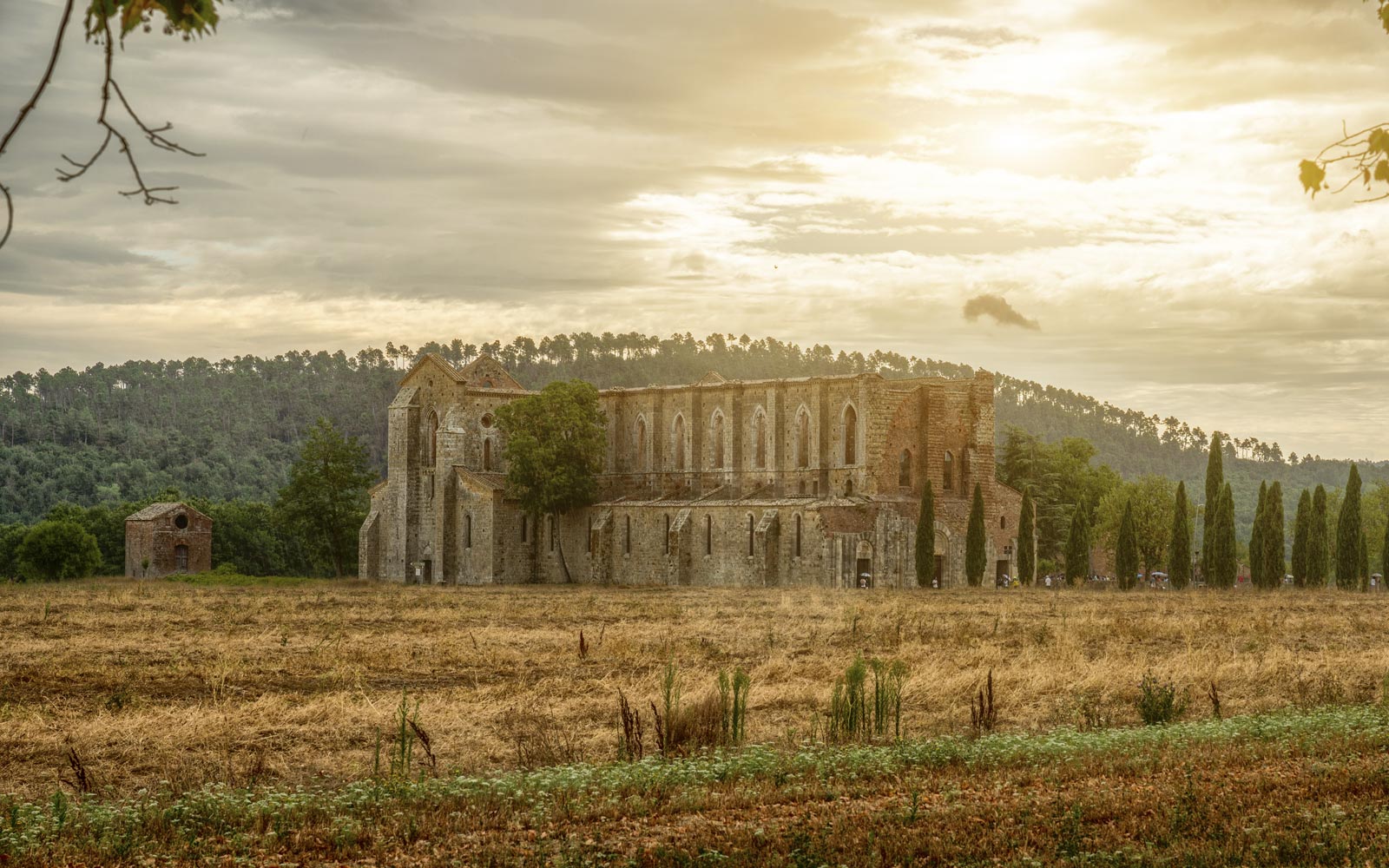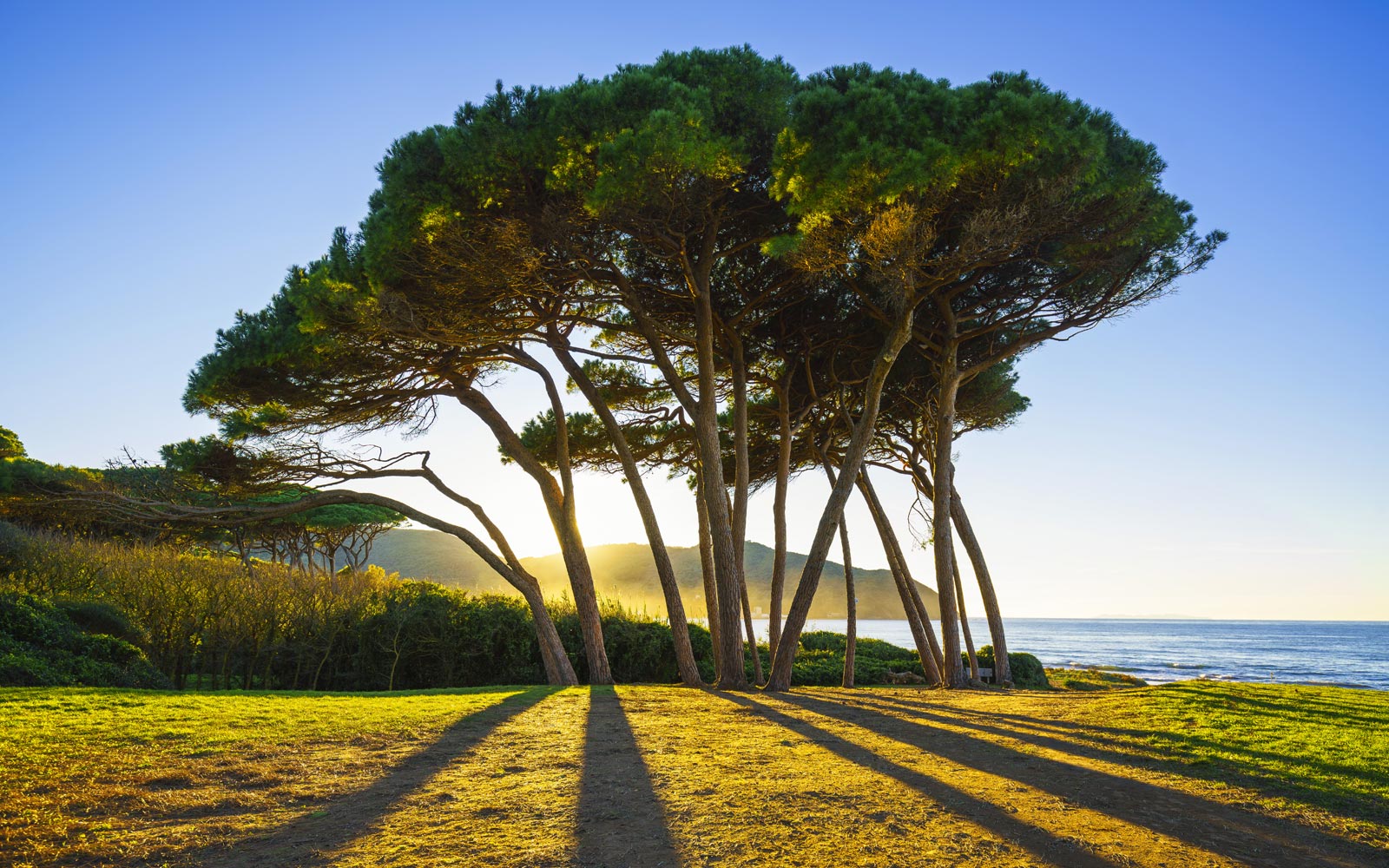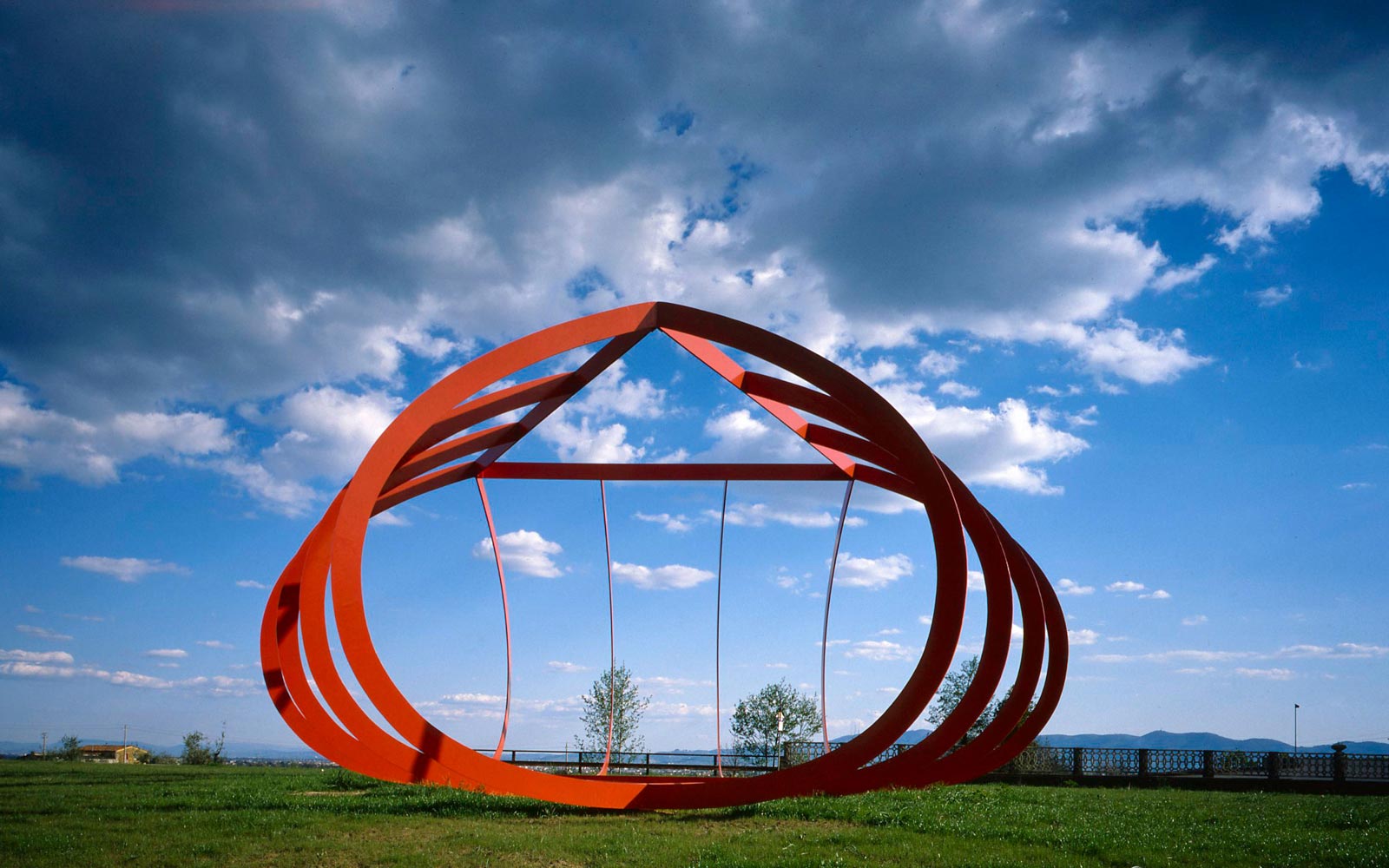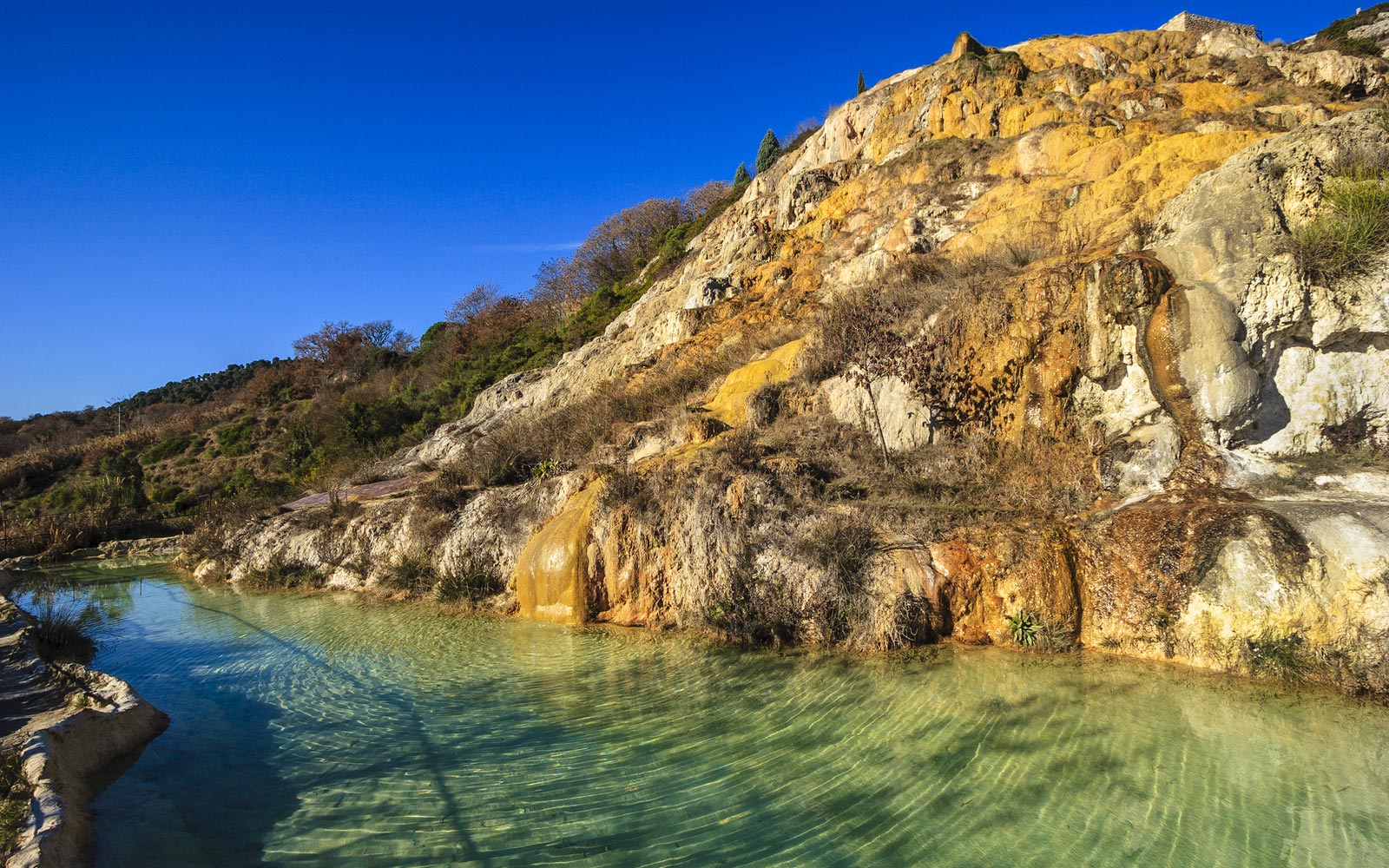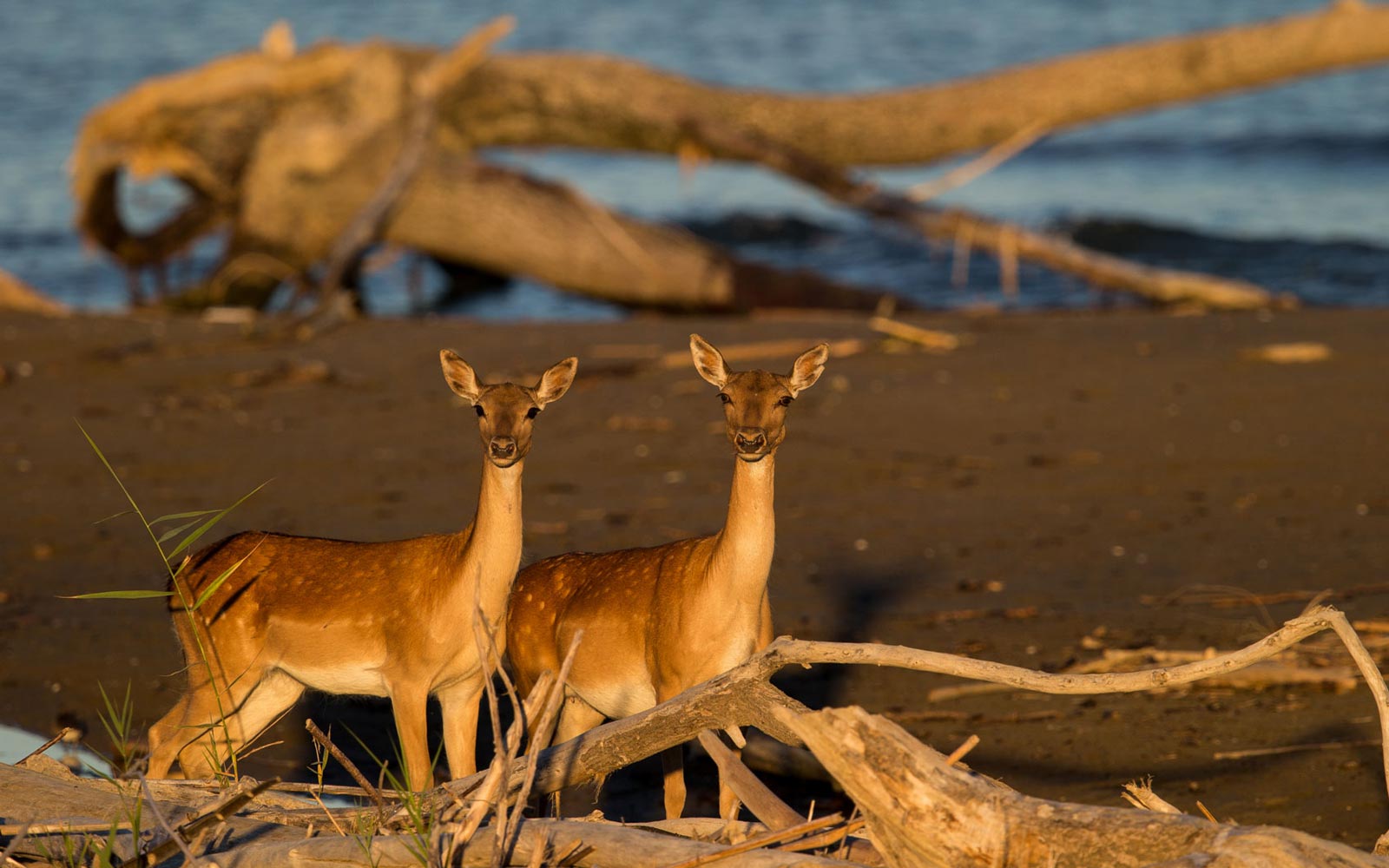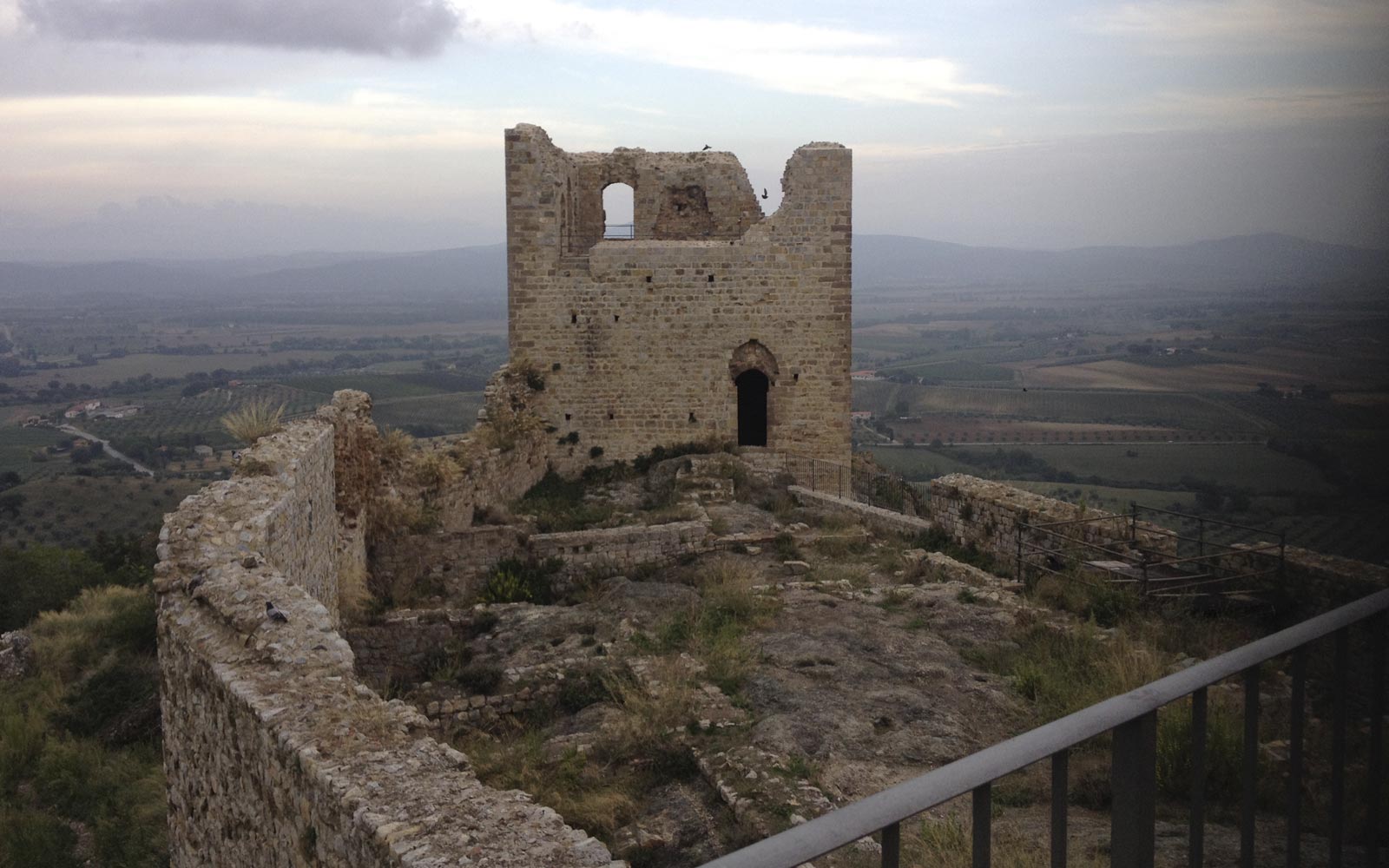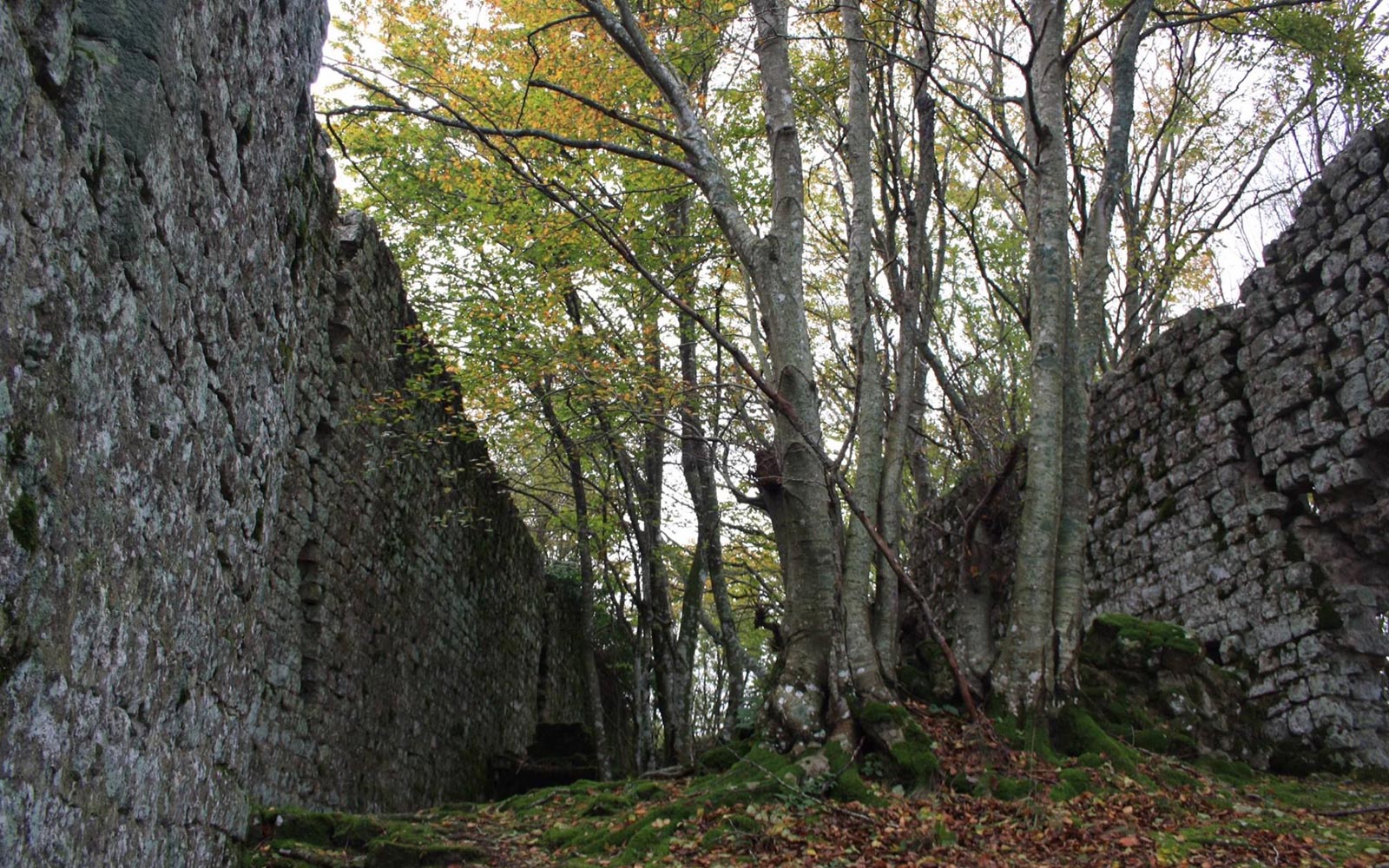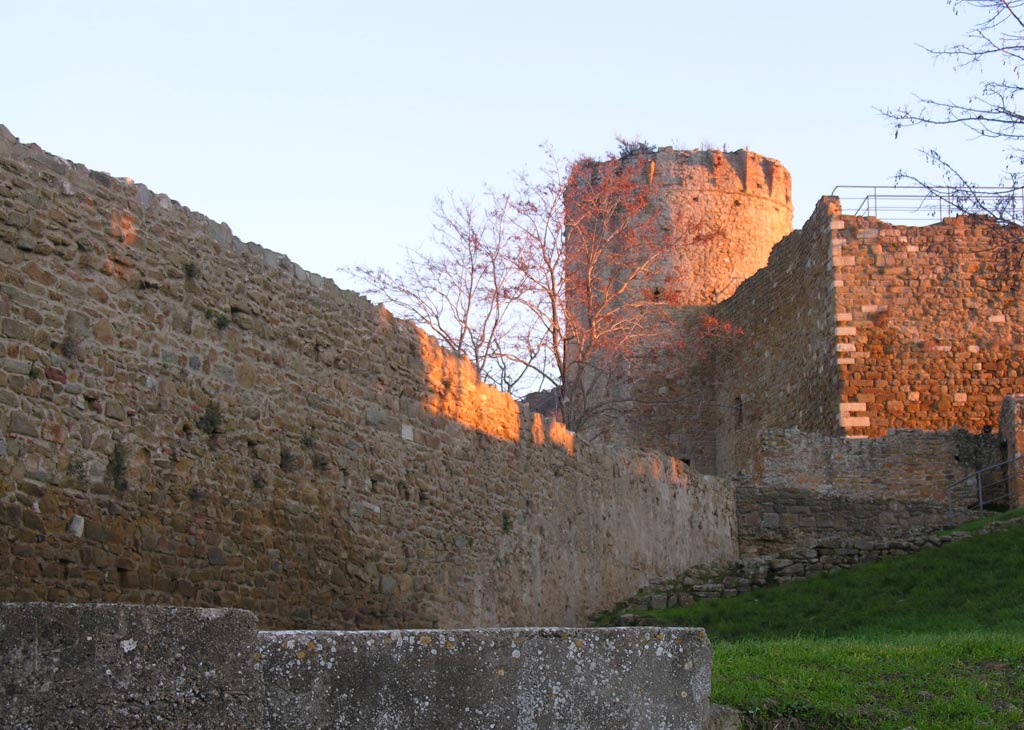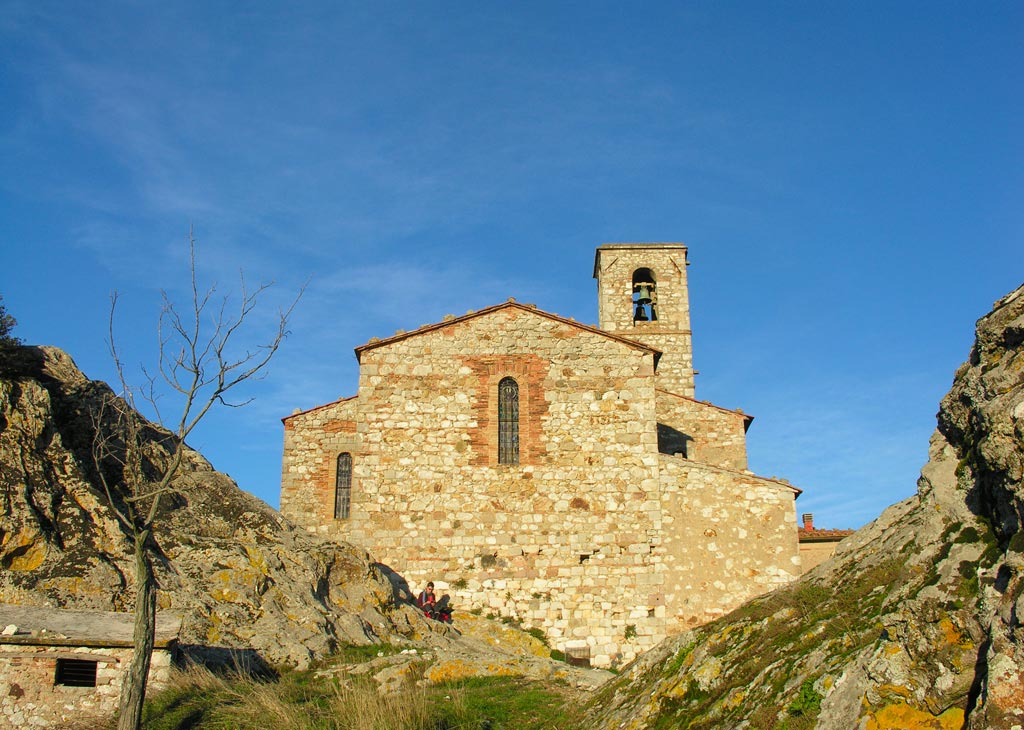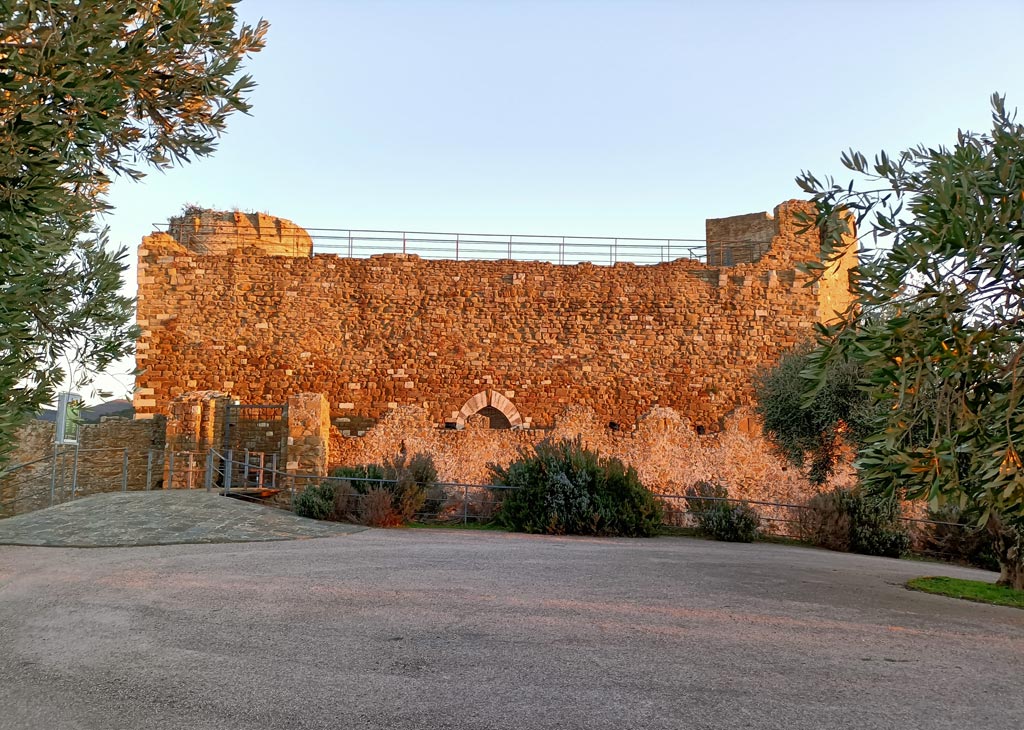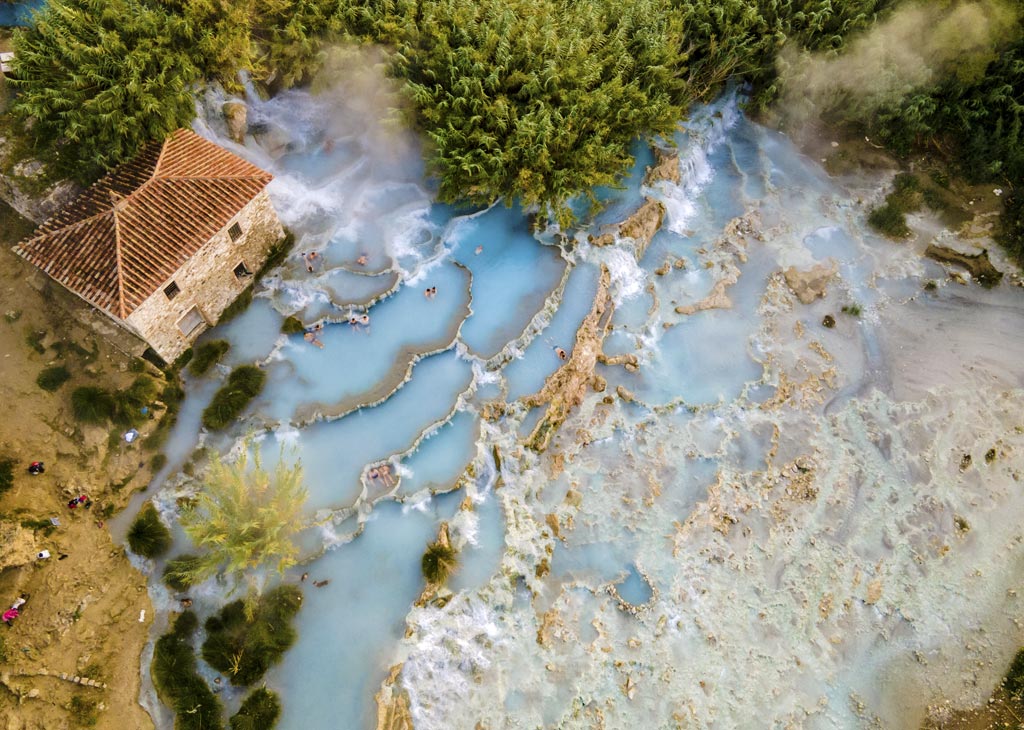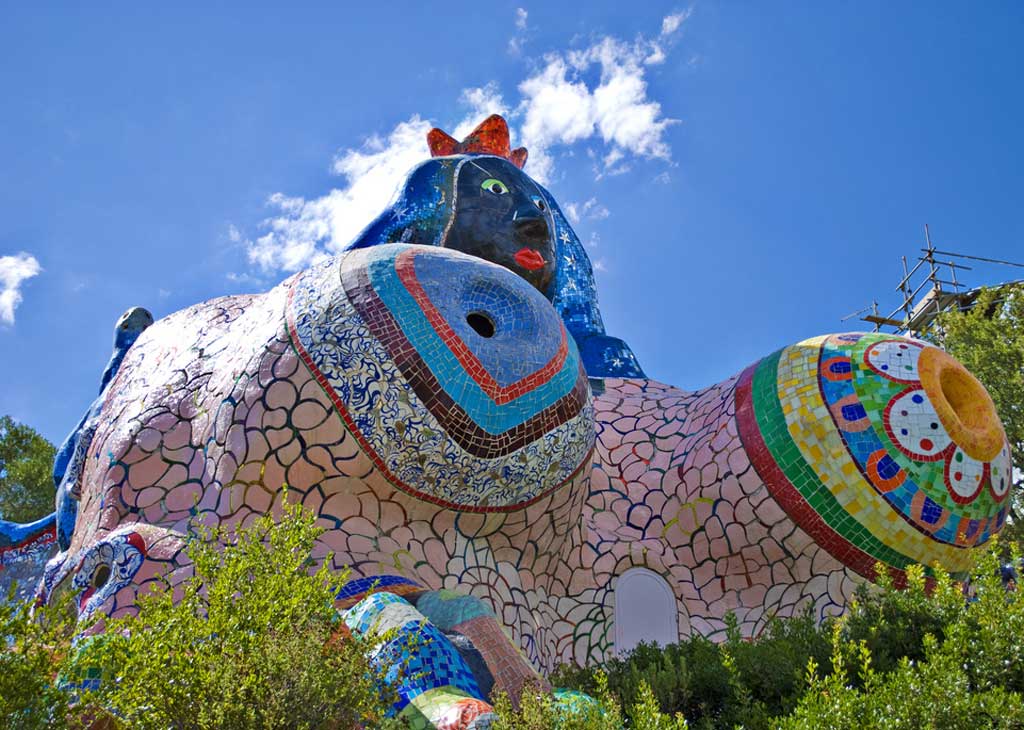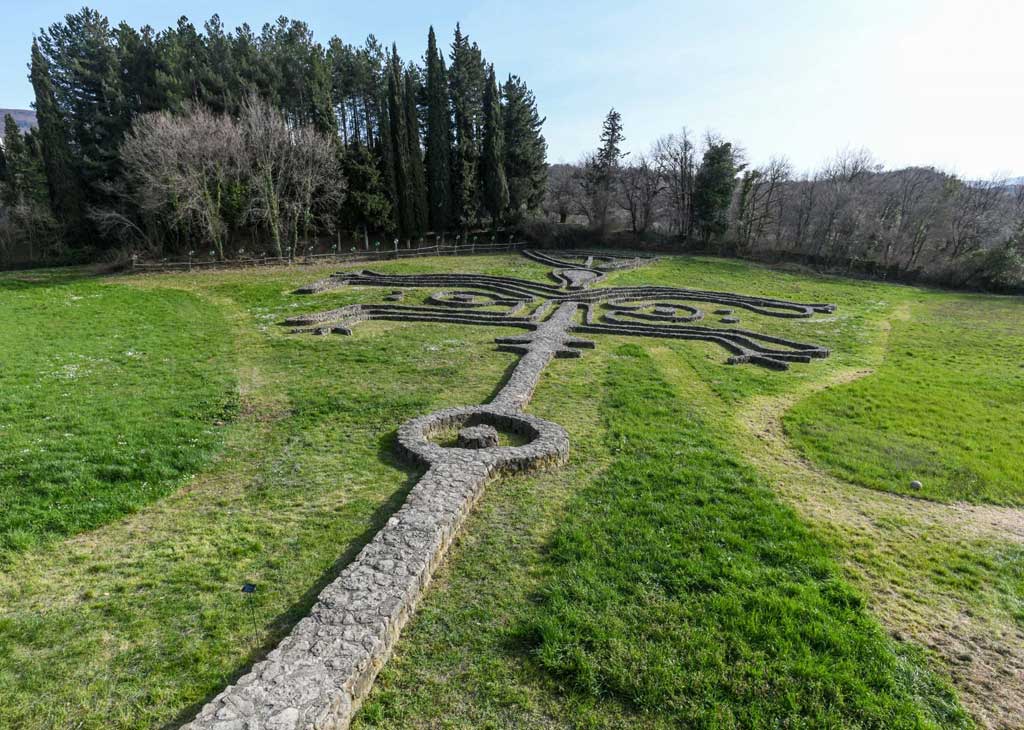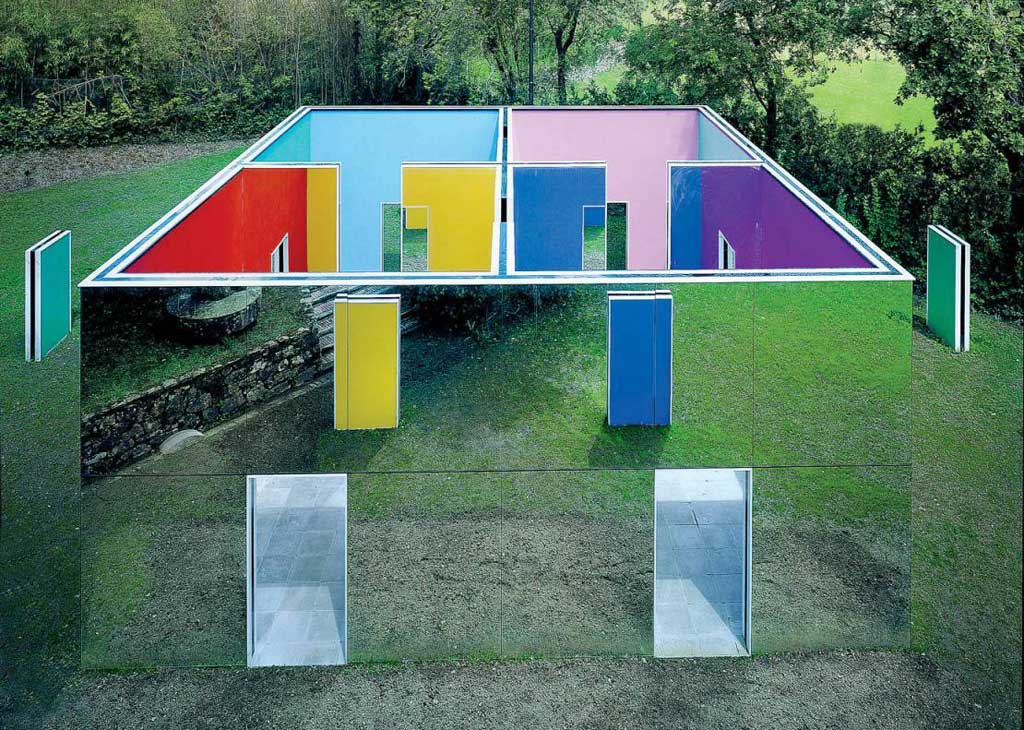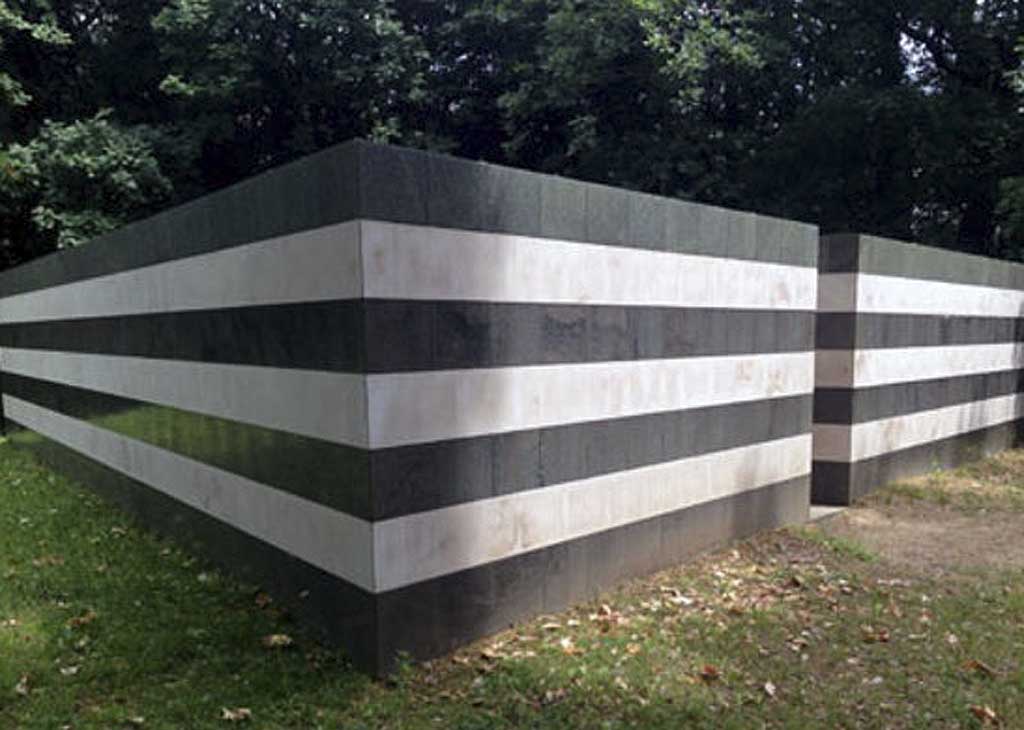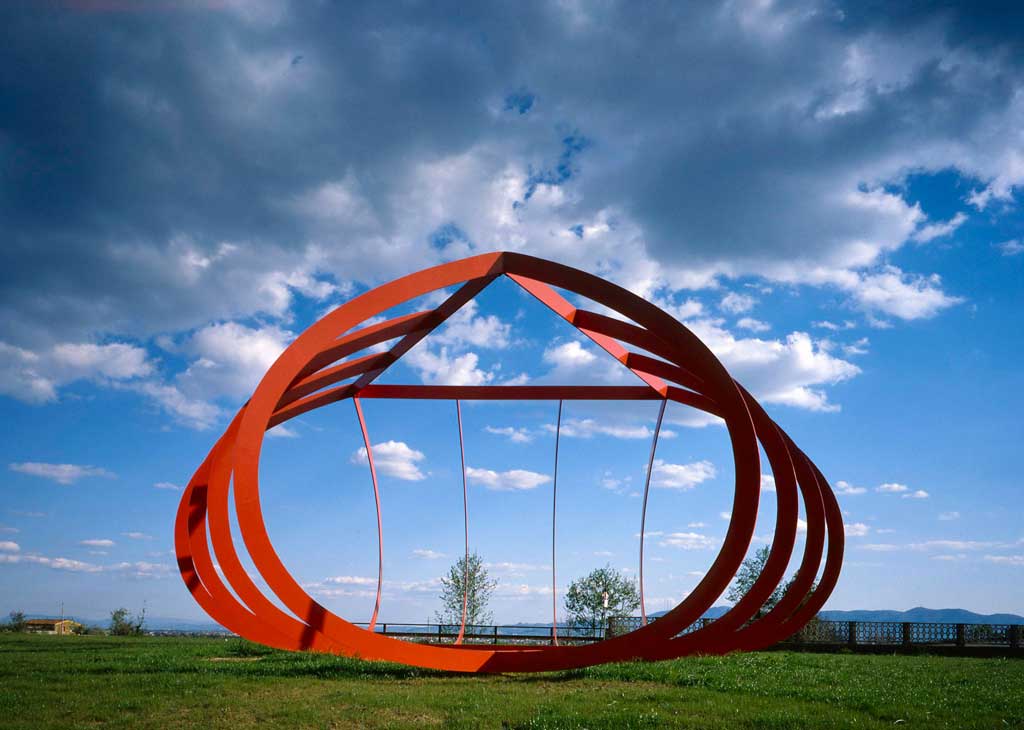The Villages
THE CROWN OF LITTLE HILLY VILLAGES SURROUNDING MONTEMASSI, framing the vast plain, looking down to the Sea
To fully appreciate the view of the Metalliferous Hills one has to move inwards from the sea to the hinterland and explore the tiny isolated villages.
Discover them during a sunny day.
Each of them, no exception, give you charming and peculiar experiences. They still show the traces of the big medieval wars between Siena and Fiorenze and their respective landlords powerful families.
Many events celebrate in any season those ancient Times: medieval tournaments, Palios, races and markets alternate to contemporary art and music festivals.
(6 km from Montemassi)
The medieval village of Roccatederighi remains one of the most interesting villages of the Maremma, with its towers and rooftops, some carved out of rock, perfectly camouflaged among enormous boulders of riolite.
SASSOFORTINO
(9km from Montemassi) War Towers ruins in the wood, the remains of the big castle and a… lot of Chestnuts (delicious Fall Fest)
TATTI, The swallow Village, very poetic. On the top of a green hill, with traces of its mysterious Etruscan origins.
(18 km from Montemassi) Tini-tiny, nowaday, it stays on the top of Northwest chain of Mountain range Monte Leoni. It ewes a huge fortress once with all its Wartchtowers looking at the plain and the coast


(19 km from Montemassi) A Fairy time atmosphere is created by the Cassero square and the 2 Churches of S.Niccolò and SS. Lorenzo e Stefano
(25 km from Montemassi) Surrounded by hectares of Mediterranean Scrub, Etruscan archeological sites and ancient mining areas now turned into contemporary cultural locations: just to name a pair, IL Parco Minerario Naturalistico di Gavorrano offers a unique visit opportunity and the Teatro delle Rocce, similar to a greek theater, carved into an ancient limestone mine, that host now concerts and theater shows.

SCARLINO
(28 km from Montemassi) Which roots date back to the Bronze Age, an important port and military fortress already at the Time of the Roman Empire. Now the village is dominated by the ancient 13th c. Rocca Pisana and host shows and concerts. Here also we have a vast archeological park and the magic Parco delle Bandite on the Coast only 10 minutes far…enchanting!
Hot Springs and Spa
Relax in Maremma means also thermal springs. Tuscany has many natural hot springs across its territory, some very famous worldwide and just beautiful. All of them are framed by enchanting landscapes, surrounded by a marvellous Nature.
While many hot springs are now part of enclosed spa centers, you still have the choice to enjoy the unique experience of the outdoor hot springs in the wild at any time of the year!
Petriolo, only half an hour from Montemassi hot springs are very popular, at the border between Grosseto and Siena, they give sulphurous waters at 42°.
They were well known to the Etruscans and Romans, and in the centuries they hosted famous figure as the Medici, the Malatesta from Pesaro, the Duke of Urbino, Federico III from Montefeltro and the Gonzagas from Mantova.
Saturnia. Before you visit the springs, you may want to stop and take some time to explore Saturnia, a small town in in the Maremma, that stands on top of a hill overlooking the famous thermal springs. Just outside the village, The Cascate del Mulino are probably the most famous natural springs in Tuscany. The waterfalls are made of several natural pools of warm thermal water, as well as a relaxing waterfall. They are open to the public and free throughout the entire year. Saturnia and its thermal springs are certainly another gem of in the treasure that the Maremma offers, an area where wild nature and history melts perfectly.
The Hot Springs of San Filippo are one of the most important and renowned Tuscan thermal places in the municipality of Castiglione d’Orcia in a wonderful valley, up on a hill close to the Amiata, looking southwards from Pienza. The healing characteristics have always been known since the Roman period Sulfureous, The whole area is not only relaxing, regenerative and healing but it it also enchanting: a breathtaking scenography, a whitish bloom, the puddles, the calcareous deposits, imposing trees, flourishing nature, sparkling stones and amazing waterfalls, among them, the Balena Bianca, the white whale.
San Galgano, Montesiepi, Chiusdino
Be impressed by the first gothic church built in Tuscany.
Few steps ahead you’ll see the Hermitage of Monte Siepi. This is now a chapel which was built after San Galgano’s death in 1181.
(If it actually dates back to San Galgano’s time is in debate, but apparently research done in 2001 has shown that it does.)
Massa Marittima and Accesa Lake
A jewel of a medieval town
One of the most beautiful squares in Italy and, about ten kilometers from Massa do not miss a natural and archaeological oasis: The Accesa Lake
Massa Marittima and its charming medieval architecture, the lovely metaphysical square in front of S.Cerbone Cathedral, the Mysterious Abbondanza Founts, the Fortress and the Tower of Candeliere, Cloisters and Churches and interesting Museums: the Archeological one at the Palazzo del Podestà, The Museum of Sacred Arts at the Convent of San Pietro all’Orto with masterpieces like the Maestà by Ambrogio Lorenzetti, sculptures by Pisano, paintings by Sassetta and Sano di Pietro and the Museums of ancient organs of Santa Cecilia Foundation.
Accesa Lake
About ten kilometers from Massa Marittima there is an interesting nature trail also of historicalarcheological interest . Only a short distance from the crystal clear waters of the lake you will find the Archeological Park of Lake Accesa that include the excavations of Etruscan dwellings.
Toscana Wineries Architecture
Journey into the art of wine malking, taste, nature and creativity.
Wine temples designed by names as Mario Botta, Renzo Piano and Tobia Scarpa.

Beautiful buildings, perfectly integrated with the surrounding landscape, which are associated with related technologies in construction and production.
The closest ones to home: La Rocca di Frassinello, only 8 from da Montemassi and Le Mortelle of Antinori family, on the route to Castiglione della Pescaia.

More info at: winearchitecture.it
The Coast
Maremma Coast is charming and enchanting! A collection of natural parks...
Medieval villages, Sea towers facing clear waters, rocky or sandy beautiful beaches.

The closest to us is the Riserva delle Bandite di Scarlino
Beautiful paths that lead visitors through a spectacular nature landscape, enjoyable either by Mountain bike, on horseback and on foot. The Bandite, together with an oasis of nature and wildlife, are a part of the Natural Protected Coastal Area of Scarlino. Here you’ll find some of the most beautiful beaches in Tuscany, with crystal waters and views that really make it a special spot. We can’t forget Cala Francese, Cala Martina – linked to Giuseppe Garibaldi – and the enchanting Cala Violina, a sandy bay named for the sound produced by your footsteps while walking over the sand.
Heading South at Punta ala, seaside lovers have the choice between charming rocky bays and long sandy beaches, framed by a lush pine wood.

Castiglione della Pescaia
This scenic seaside destination vaunted splendid views of Elba and Giglio islands (not too far from the Argentario promontory). Whatever you're looking for, this town has it all: wild landscapes, unspoiled scenery and excellent food and wine.
Very much recommended enjoying the sunset waiting for the fishermen harboring int the little port and a visit to Reserve of the Diaccia Botrona: a wildlife sanctuary just inland from Castiglione della Pescaia in Tuscany, home also to flamingo.
Do not miss a visit to Talamone And a day at Parco della Maremma, The Maremma Park coastline extends for 25 km from Principina a Mare to Talamone and it includes the Ombrone river mouth, in the north of Marina di Alberese. It ‘a very different type of coastline, characterized by sandy beaches with large dunes as Collelungo and Principina, bays as Cala di Forno and cliffs as the coast in Talamone. It is huge and rich in forests, caves, river, wild fauna. What an experience! Or Orbetello e Argentario: charrming village, poetic lagoon, ports and dreamy coves.
When you decide to head North, instead, you will enjoy Baratti e la costa Etrusca, the Etruscan Coast, one of the Tuscan Wonders
The Gulf of Baratti is a patch of unspoilt nature between the Tyrrhenian and Ligurian Seas, situated at a stone’s throw from Piombino It’s a destination within everybody’s reach for all those visiting Tuscany and feel like touring a timeless place, where nature, history and art come together.

This was the Etruscans’ favourite coastal area, and the ancient civilization left behind endless traces of their time here that invite visitors to explore this fascinating and mysterious place. Along the coast is Populonia, their only city on the sea, nestled in the Baratti Gulf. The necropolis highlights the desires and secrets of this enigmatic population, home to a large number of artefacts.
Art Parks
Tuscany is not only the cradle of ancient civilizations, but it hosts many contemporary art collections. Maremma landscape is highly inspiring and lends itself well to enhancement by art.
Located in Boccheggiano, only 30 minutes from Montemassi, this garden is an oasis lost in time, creating art not just for the eyes, but also for the ears. Paul’s garden engages in a dialogue with the Tuscan countryside, so that while the sculptures are made from urban materials, they are able to connect with their surroundings.

Il Giardino di Daniel Spoerri
Nearby Seggiano, in the south of Tuscany You can find the contemporary sculpturegarden »Il Giardino di Daniel Spoerri«. The foundation known as »Il Giardino di Daniel Spoerri« was founded in 1997. Gradually, Daniel Spoerri enriched the sculpture park with an ever increasing number of installations – his own works and those of artists who have played an important part in his life. Now visitors can discover 113 installations by 54 different artists across the rolling parkland. Hic Terminus haeret, “here the boundaries end”: the Latin motto at the entrance to Il Giardino that best describe this beautiful project.
Il Giardino dei Tarocchi - Tarot Garden
In Capalbio created by Niki de Saint Phalle. The Tarot Garden is an artistic park composed by monumental sculptural (12/15 metres high) inspired at the Tarots. Niki de Saint Phalle has created this garden on the hill of Garavicchio. Work on the garden started in 1979 and was completed in 1996, for a cost of 5 million euros! The artist was inspired by the Gaudi she saw on a trip to Barcelona in 1955, and while there is a lot of Gaudi here both in the undulous forms and in the use of mosaic, Niki’s own personality strongly shines through.
A very special one:
This is a real huge extraordinary outdoor-indoor Contemporary Art Museum, unique in Europe
The Gori Collection was formed over two distinct periods: the first phase ran from 1950 to 1970 while the second one began at the Fattoria di Celle in 1970. Giuliano and Pina Gori founded their collection of contemporary art in Prato and, right from the beginning, they favoured those artists who were working to innovate the art of their time. In this first phase of the collection’s evolution, the Gori home became a kind of “salon” where friends artists, critics,and art lovers alike gathered frequently to view and discuss the artworks.
In the park works by Artists from all over the world:
Alice Aycock, Dani Karavan, Fausto Melotti, Robert Morris, Dennis Oppenheim, Anne and Patrick Poirier, Ulrich Ruckriem, Richard Serra, Mauro Staccioli e George Trakas; Nicola De Maria, Luciano Fabro, Mimmo Paladino, Giuseppe Penone, Michelangelo Pistoletto, Gianni Ruffi, Aldo Spoldi and Gilberto Zorio, Vedova. For over thirty-five years the Gori Collection has worked to consolidate the Fattoria di Celle as an interdisciplinary workshop that carries on constant creative activity.


